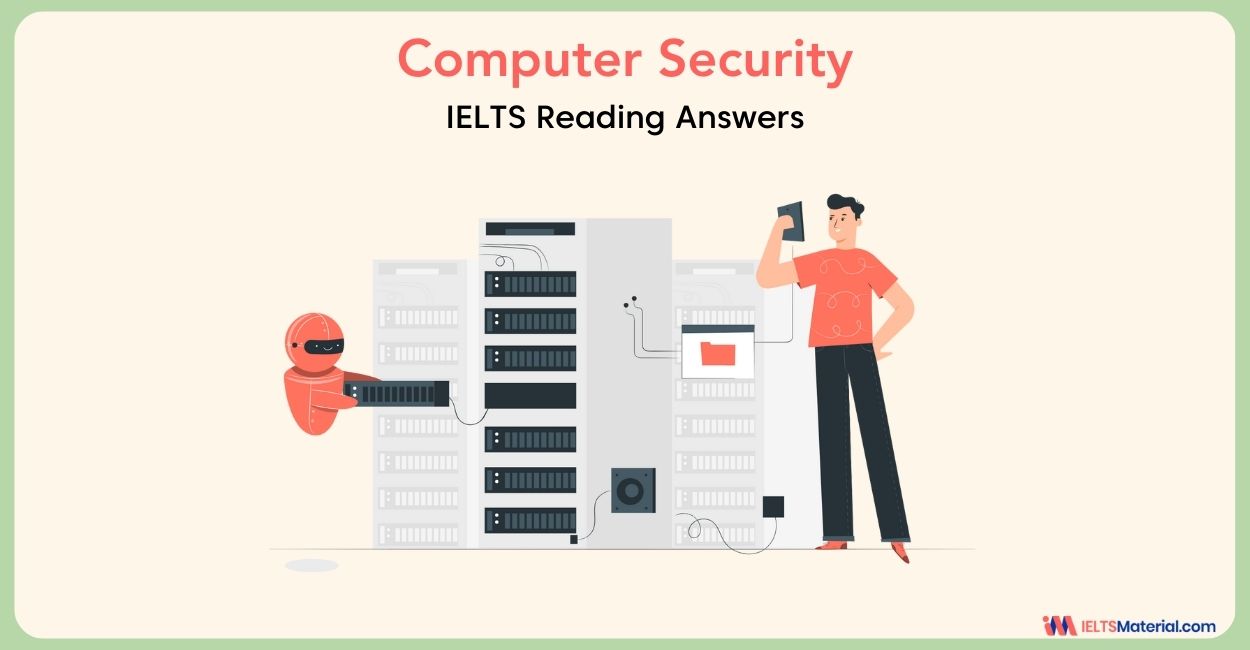Busy Days: IELTS Speaking Practice Test 26
Table of Contents

Limited-Time Offer : Access a FREE 10-Day IELTS Study Plan!
Here is a list of speaking part 1, 2, 3 questions that IELTS learners shared with us. Try and answer them to prepare yourself for the IELTS test.
Speaking Part 1
1Are you busy recently?
Yes, I have been for the past few months. I’ve been preparing for the GATE examination. The exam is on 29th August,2021.
2Do you like being busy?/ Do you prefer to be busy or to be free?
No. I do not like being busy. It’s true that it keeps me preoccupied but being busy brings a lot of stress to handle. Freetime is equally important as productive days.
3Was there a time when you felt stressed out (or under pressure) because of a busy schedule?
Yes. I have a habit of taking extra pressure whenever I am working. So it is always beneficial if I plan out the work. Sometimes, I try to calm myself down and plan out the entire work before implementing it.
4Have you experienced stress at work?
Yes, I have. Sometimes when I have to finish assignments or projects, it’s stressful. It becomes more stressful when I have to reach a dead limit. Stress is an annoying thing that goes under your skin whenever you have a time limitation.
Speaking Part 2
Here is an audio of the sample answers given below. Please listen to it for more clarity on the Speaking Test.
Describe a time when you are very busy(OR: Talk about a very busy day in your life/Describe a busy time in your life)
You should say
- when this time
- what you do at this time
- how you arrange your time
- and explain how you feel after this busy time is over
Sample Answer 1
Usually at the end of the term, my teachers start giving me a ton of homework to help me prepare for the exam.
I have 6 classes: Chinese, Math, Science, History, Geography and English, and each teacher gives me so much homework that by the end of the week I have a stack of papers that look the size of a small book. I must complete all this homework before the next week begins or I will face a penalty. So what else can I do, but get busy and start burning the candle at both ends and burning the midnight oil until the work is done? This means forget about basketball and watching TV and even just fooling around with my friends. It also means stinging eyes and large yawns during the day. It means brain overload for a while.
Now how do I feel when it’s over? Well, how does a tree feel after a storm? How does a branch feel when the weight is gone? How does a bird sing after the rain? I know that I am getting a bit poetic, but actually it feels quite good to be relieved of this pressure. I like to go out in the sunshine and fresh air and just walk around to enjoy life for a while.
Vocabulary for Cue card
- Homework: assignments
Eg: He has done his homework - Stinging: characterized by a sharp tingling or burning sensation.
Eg: The stinging pain isn’t going away - Yawn: a reflex consisting of the simultaneous inhalation of air and the stretching of the eardrums, followed by an exhalation of breath
Eg: Stop yawning in the class! - Poetic: relating to or used in poetry.
Eg: He is very Poetic
[do_widget id=custom_html-47]
Sample Answer 2
Perhaps the busiest period of my life was when I was preparing to give competitive exams to gain admission into my dream college. It assesses your subject matter expertise as well as your capacity to tackle large-scale projects without hesitation. It is important to show tenacity and aptitude for learning. It is a challenging feat, so I planned my daily preparation around studying as much as possible.
I didn’t have time for social media, entertainment, or going outside. My only responsibilities were to study and eat. For three months, I was completely confined to my home. I was cut off from the outside world, including my friends. I would wake up and take the bus to my school. After classes, I would spend the afternoon studying in the library. To clear my mind, I would take short breaks and take walks around the school garden. I would return home at 7 pm and read the news to catch up on current affairs until dinner before going to bed.
So almost every day, I was completely unaware of what was going on around me, locked away studying diligently. I was so busy some days that I ended up doing my homework on the school bus. However, all my hard work paid off and I was able to get into my first choice university. Overall, I’m glad to have had this experience, but I definitely wouldn’t want to do it again.
Speaking Part 3
1Do you manage your time effectively?
It really depends on what I’m doing. If I’m feeling lazy. I tend to do whatever first comes to mind, but when I am more active, I usually organize what I’m supposed to do by importance. Sadly more often than not I forget to organize my thoughts and end up wasting a lot of precious time. But I’m working on changing all that.
2Do you like making detailed plans?
I don’t usually make detailed plans for the work I’m doing, but I really like the outline method, where you just list the main points and sub-points of your project. Then you can clearly see what you need to accomplish and how realistic your time frame needs to be. But for the most part I don’t particularly like drawing detailed plans.
3What are the advantages of making plans?
One advantage, like I said before, is that you can clearly see what it is you need to accomplish and better plan about how much time you need to accomplish it. Another advantage is that important details are less likely to be left out. Quite a few times I’ve had to go back and redo something that I was working on just because I overlooked a small but important detail, which in the end cost me a lot of extra time, and sometimes money. Thankfully I’ve been getting better at time management and have fewer problems than before.
4Do you use any special tools, such as a computer, to help you draw up plans?
Like I said. I’m an extremely lazy person, so I usually try to be as simple as I can when drawing up plans. I’ll usually use a sheet of paper and a pencil to write up whatever it is I’m planning. The only problem is that I often lose the paper and have to go back and rewrite it. This is, in my opinion, a huge waste of time, so I’ve been thinking about using my computer to make my plans, and hopefully save time… and paper.
5Do you keep a diary?
I’ve tried on several occasions to start a diary, but I usually forget about it after a week or so. I think I’ve started about seven diaries in my life time, and the longest one lasted for about 2 months. Diaries just don’t seem to work for me, so I think I’ll spend my time doing more profitable things, like playing my guitar. Maybe some day I’ll start a diary and actually keep it but for now I think I’ll just stay away from them.
6Compare the way old people and young people spend their leisure time.
Many old people spend their leisure time indoors, sitting down, reading a book or resting; or they might go outside for a brisk walk in the evening. Many of them enjoy watching TV or knitting. Young people, on the other hand, enjoy a variety of things. Many do the same things I mentioned that old people do, but in my opinion there are many more options available if you are young. You can play sports, go clubbing all night, participate in extreme sports like bungee jumping or sky diving—that might give an older person a heart attack.
7Do people today have more leisure time than before?
I think that since modern appliances have cut down the amount of unnecessary physical work we need do, there is more time for leisure. You don’t have to gather wood to make a fire, and you don’t have to spend 1 or 2 hours lighting your fire. Cell phones and instant messaging make it possible to communicate immediately with your friends and associates, cutting back on time needed to wait for telegraphs or snail mail replies. The only problem is that even though everything is so much easier, there are other complications that people in the past didn’t have, such as traffic jams and long lines at the supermarket. Also it really depends on the person, because I know some people who never rest or take time off. They’re always working and never stop. But I also know some guys who are the total opposite: they make every excuse why they can’t do what’s being asked of them, and I imagine that in the past it was the same.
8Do you think leisure time is important? Why?
Yes, I think that leisure time is very important. Like the saying goes, “all work and no play makes jack a dull boy.” If you’re working nonstop and never take the time to let your hair down, you’ll most likely get stressed out and even get sick. If I don’t take some time to just relax a bit every week, I end up getting sick, and have to stay in bed for a few days. So in my opinion leisure time is vital to maintaining health and sanity.
9How have leisure activities changed in China in the past few years?
Well, for one thing, many more Chinese, mostly young people, have been spending a lot more time on their computers, either playing games, studying, doing research and business, or any number of things. Before, if you wanted to relax, you just went for a walk, read a book, or played mahjong with friends. Now the possibilities are endless. Many people still relax in the traditional ways, but many more are finding new and different ways to spend their leisure time.
10How do you think leisure-time activities will change in the future?
You know what? I have absolutely no idea! I mean, 10 years ago, did you think that modern technology would be as advanced as it is now? They have mp3 and mp4 players, who knows, they might come out with an mp5 next year where you actually experience what you’re seeing. Computers are getting smaller and smaller, someday you might have to use a microscope to view your computer screen. Music players for that matter are also gelling smaller, slimmer and more compact. A few years from now you might be able to get an mp3 player in a little chip under your skin that’s controlled by your brain.
Vocabulary for Speaking Part 3
- Management: a process of planning, decision making, organizing, leading, motivation and controlling the human resources, financial, physical, and information resources of an organization to reach its goals efficiently and effectively.
Eg: The management is looking after the issue - bungee jumping: activity that involves a person jumping from a great height while connected to a large elastic cord
Eg: I want to go bungee jumping - Skydiving: method of transiting from a high point to Earth with the aid of gravity, involving the control of speed during the descent using a parachute or parachutes
Eg: She did skydiving the last time she visited Spain - Leisure: relaxing
Eg: I draw during my leisure time
Also check :
Explore IELTS Speaking

Start Preparing for IELTS: Get Your 10-Day Study Plan Today!
Explore other Speaking Practice Tests

Courtney Miller
Recent Articles

Nehasri Ravishenbagam

Janice Thompson

Raajdeep Saha








Post your Comments